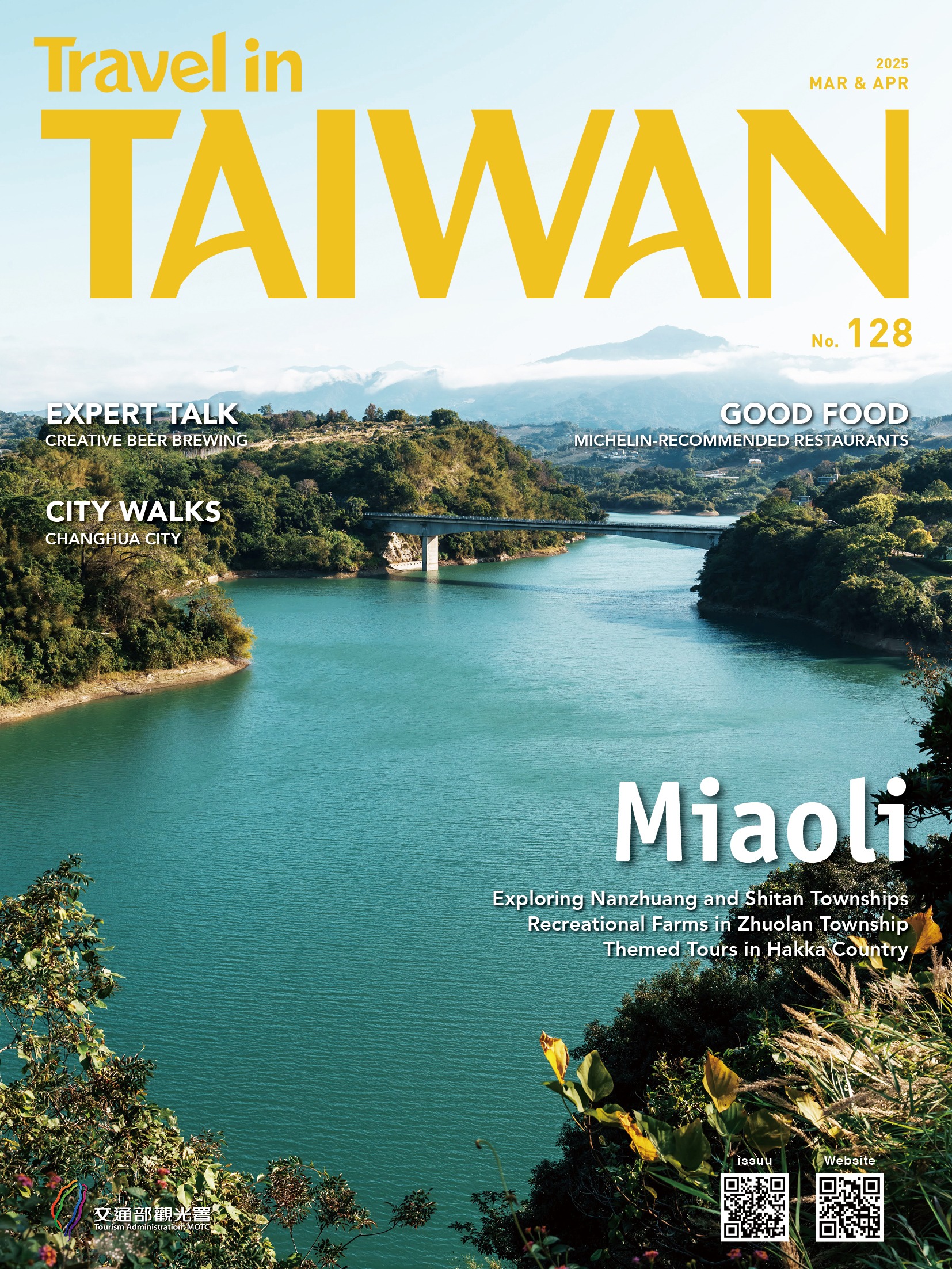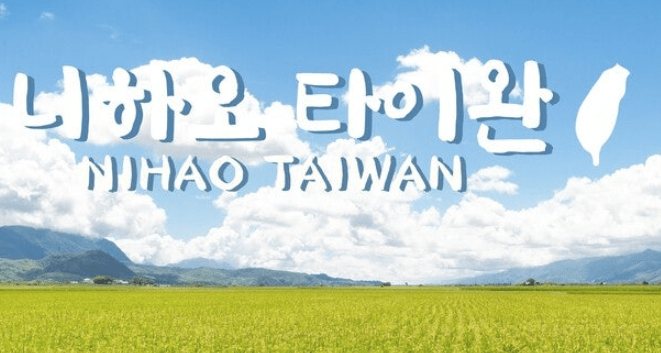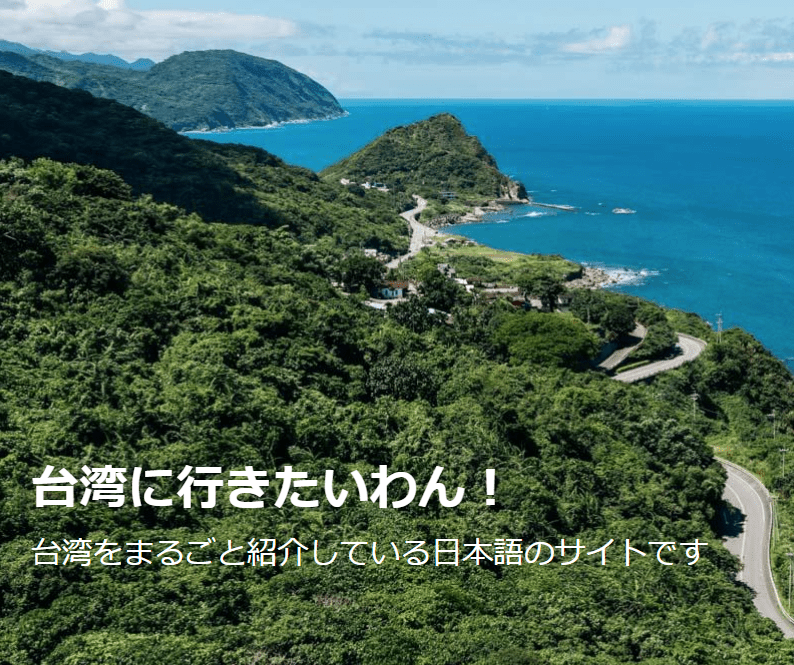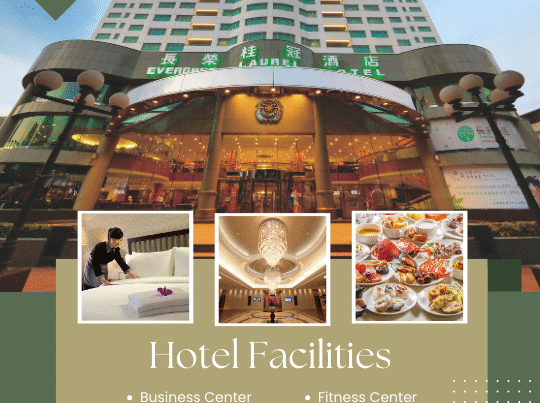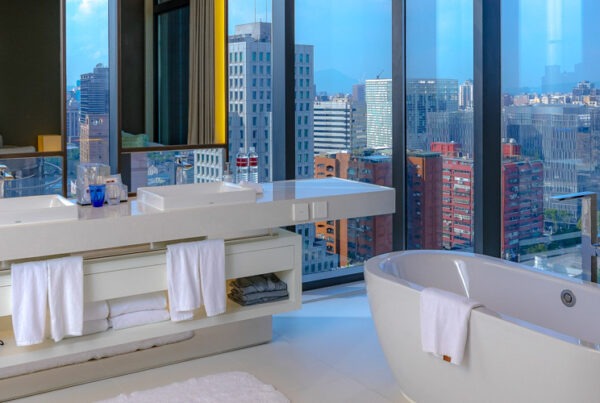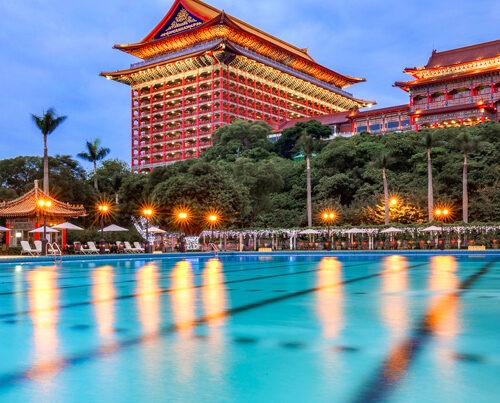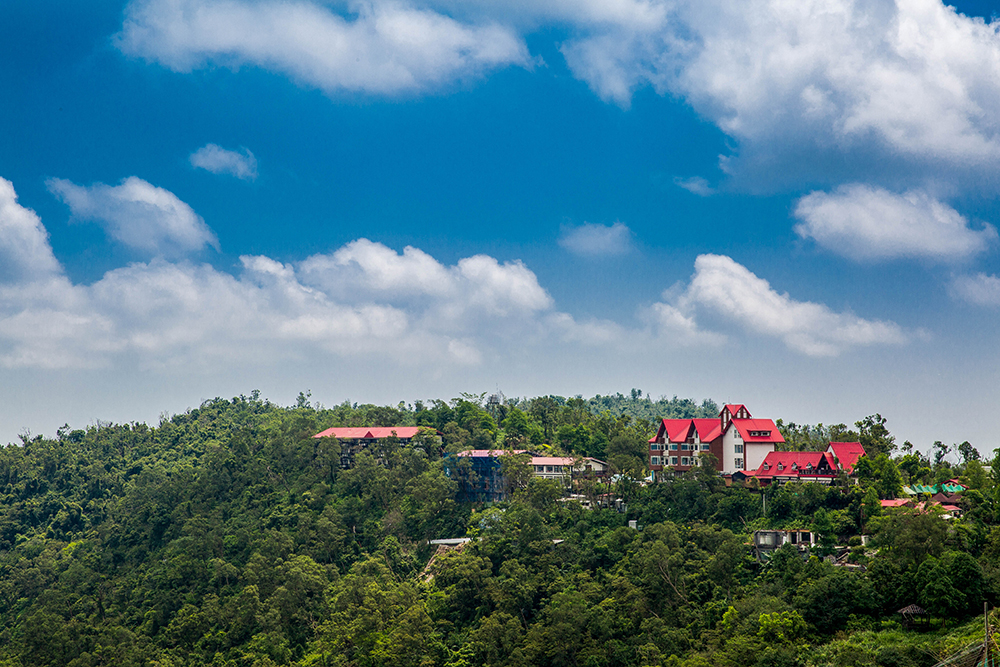
Shangrila Leisure Farm
Sitting in the verdant hills of southern Yilan County overlooking the expansive Lanyang Plain, Shangrila Leisure Farm is a great getaway, offering you pristine nature, refreshing fruit orchards, and enchanting views you can enjoy right from your comfy guestroom.
Text: Owain Mckimm; Photos: Maggie Song
There are a large number of leisure farms in Taiwan (202 to be precise), and Yilan County in the northeast has the highest density, cramming 29 into an area of around 300 square kilometers. With numbers, of course, comes variety – there are leisure farms that emphasize the farm-life element, some as kitschy petting zoos, others as real working farms with a strong focus on ecological education; others are more about the leisure – relaxing in nature, strolling among orchards, appreciating grand mountaintop vistas.
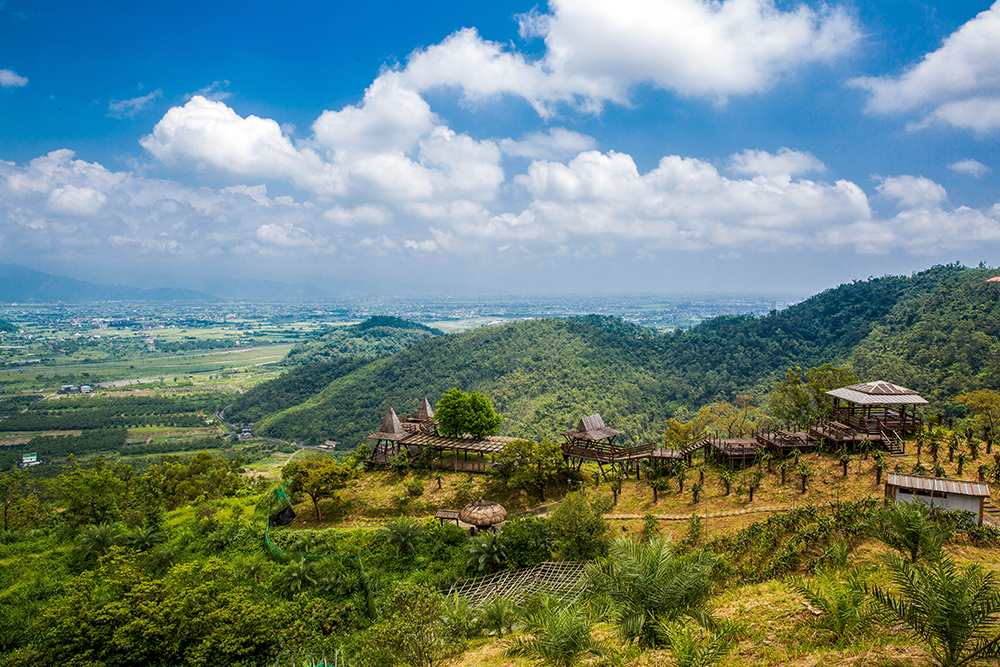
View from the farm over the Lanyang Plain
The Shangrila Leisure Farm, a 17-hectare tourist operation high up on Mt. Dayuan, falls firmly into the latter category. There are no bleating lambs or squelching wellington boots here, only mountainside fruit groves, observation towers on rocky outcrops, chirruping insects, fluttering butterflies, eagles circling above. If you’re looking for an activity-filled day with hands-on animal feeding, or a day transplanting rice seedlings, or a go on a tractor, it might not be up your alley; but if you want somewhere to recharge your batteries, to retreat for a while from the world, the Shangrila Leisure Farm is just the place.
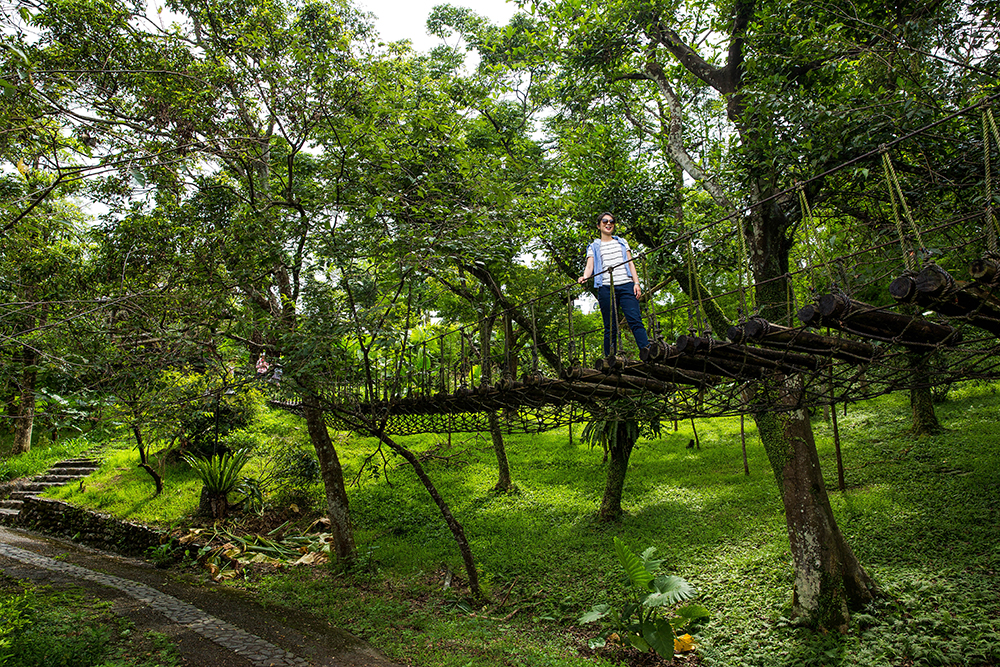
On a walk around the farm
The orchard farm was completed in 1988 and was, at the time, the first of its kind in Taiwan. The owner, Zhang Qing-lai, is a local boy, born in nearby Dajin Village into a farming family. As a young man, Zhang would see tourists from the city arriving in his village, practically begging to be allowed to pick fruit from the local orchards. The farmers, however, were reticent to let them do so, as they feared the city slickers would damage their crops. Zhang also noticed that many of the better-off tourists were civil servants, and he made it his dream to become one himself.
After many years of study, he did finally pass the civil service exam – no mean feat in Taiwan – but after only seven days on the job he began to feel claustrophobic in his government-issued office, and longed to go back to the farming lifestyle of his youth. Though called a fool by his friends and relatives, Zhang recalled the city folk who had come to the countryside wanting to pick fruit, and the idea for the Shangrila Leisure Farm was born.
On a recent tour of the farm’s orchards, our guide for the day, Lin Ya-wen, showed us the many types of trees and plants that populate the farm and its environs. The Shangrila Leisure Farm, Lin said, is one of the few places where people can see the rare Formosan michelia. Because of its sturdy wood, the tree was once widely used for house-building and furniture; now however, it’s a protected species, and the Shangrila farm has worked together with the Taiwan Forestry Bureau to plant and protect 70,000 of these silver-barked trees, which, because of their slow growth rate, still appear to be barely more than saplings despite being planted decades ago. In addition to the michelia, Lin points out Brazilian grapetrees, bald pines, Formosan ash swarming with rhinoceros beetles (which like to suck the sap) and cicadas, fragrant camphors, and even a miracle fruit tree (the berries of which, if you eat them, confuse your taste buds into perceiving sour flavors as sweet).
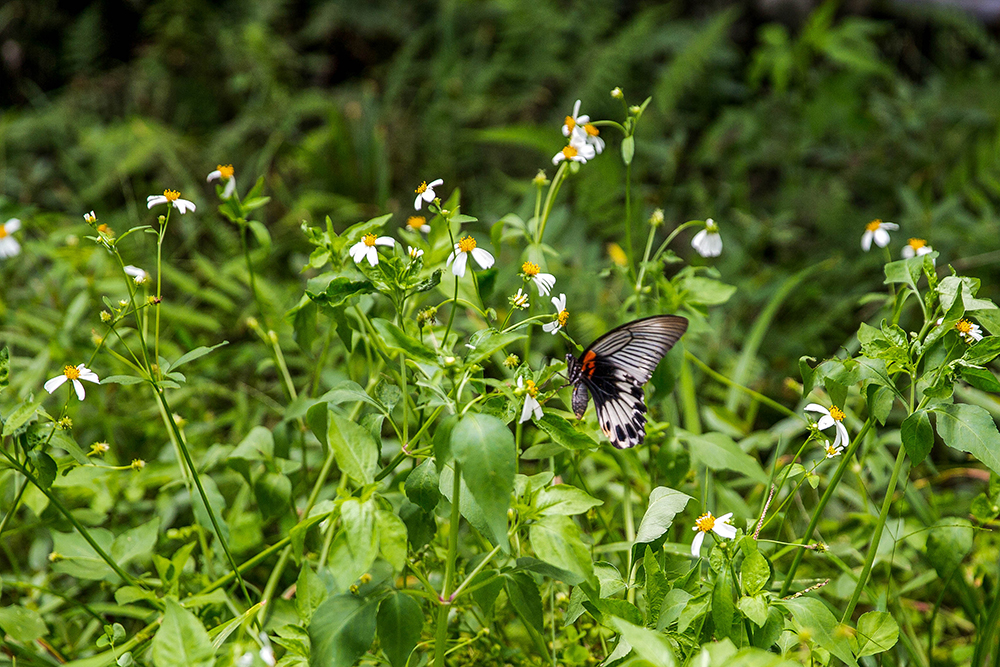
Swallowtails and other butterflies are common on the farm
The main attractions, though, are the fruit trees – guavas, dragonfruits, sweet oranges, wax apples, kumquats, starfruit, pomelos, mulberries. The fruits, when in season, are free for anyone to pick, and if you eat them inside the orchard, you can pick as much as you like free of charge. If you want to take some fruit home, however, you will have to pay for what you take away by weight.
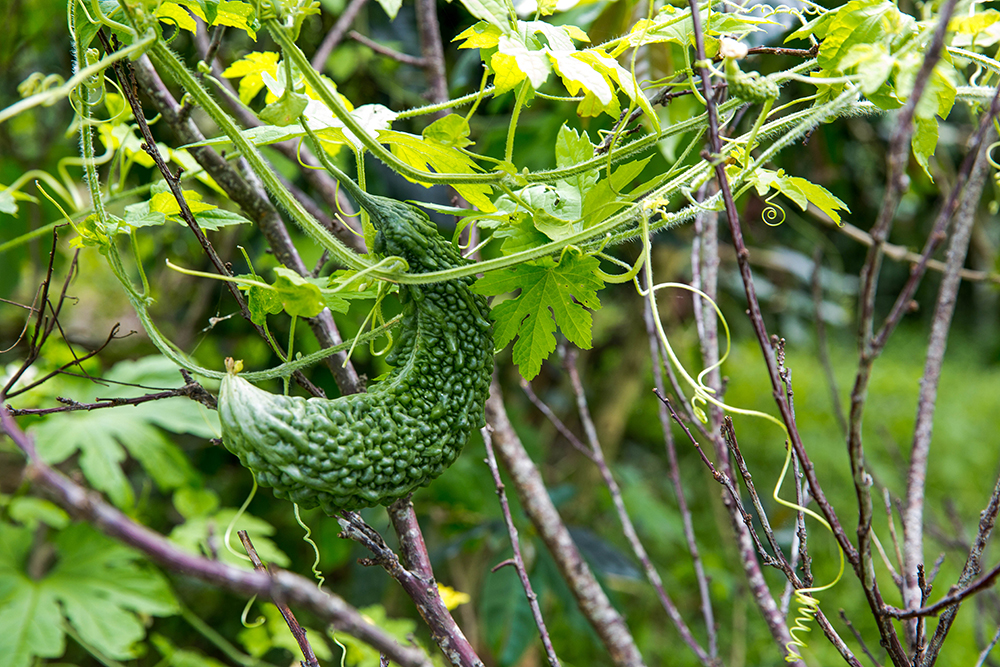
A bitter gourd
At the far end of the orchard area is a viewing platform with a hanging drum, resembling the type of drum you see at many of Taiwan’s temples (which, if you so wish, you can beat to your heart’s content – though do be aware that the sound can be heard right across the mountain). The views from here of the Lanyang Plain and the surrounding peaks are just sublime.
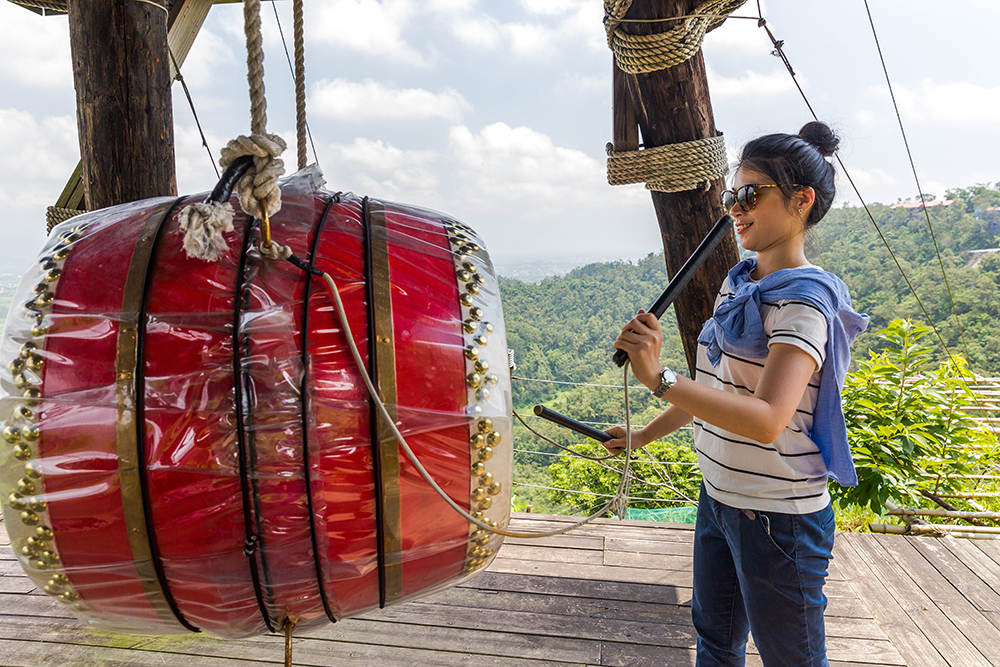
Hanging drum on wooden platform
Guided nature tours are available, cost NT$2,000 per group (regardless of number of participants; booking three days in advance required), and last about an hour – it’s recommended that you let the staff know ahead of time if you’d like a tour. But you are by no means obliged to take a tour to enter the orchards; guests staying at the farm overnight can enter any time for free, while casual visitors must pay an entrance fee of NT$250.
If you have kids with you, or you yourself have itchy creative fingers, there are several DIY options too – whistle, rattle, toy, and lantern making, as well as T-shirt and spinning-top painting. Ask the staff at the DIY hut opposite the main entrance for details.
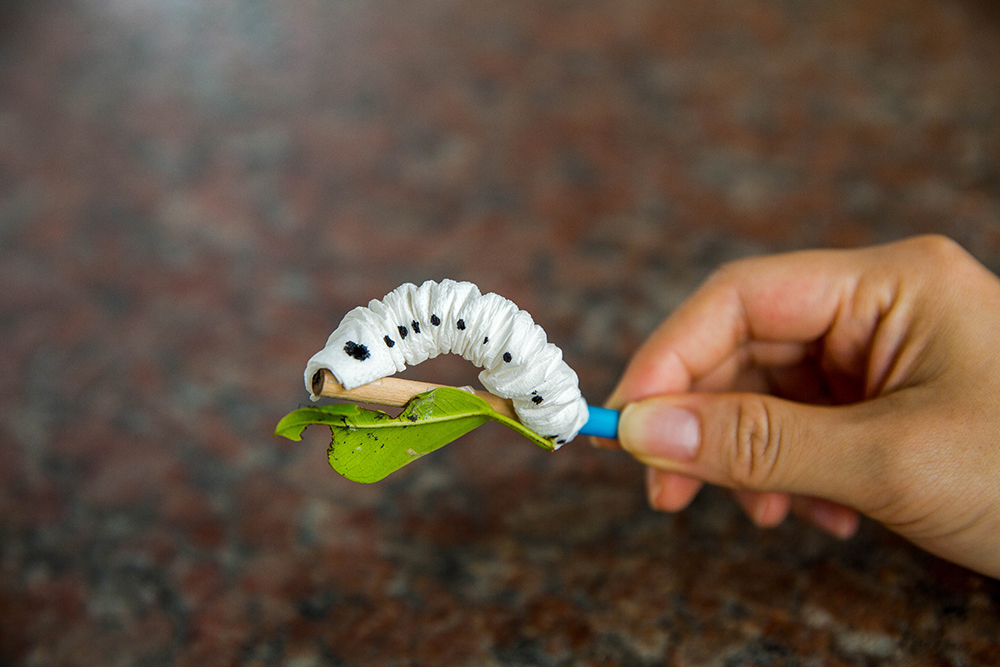
DIY toy making
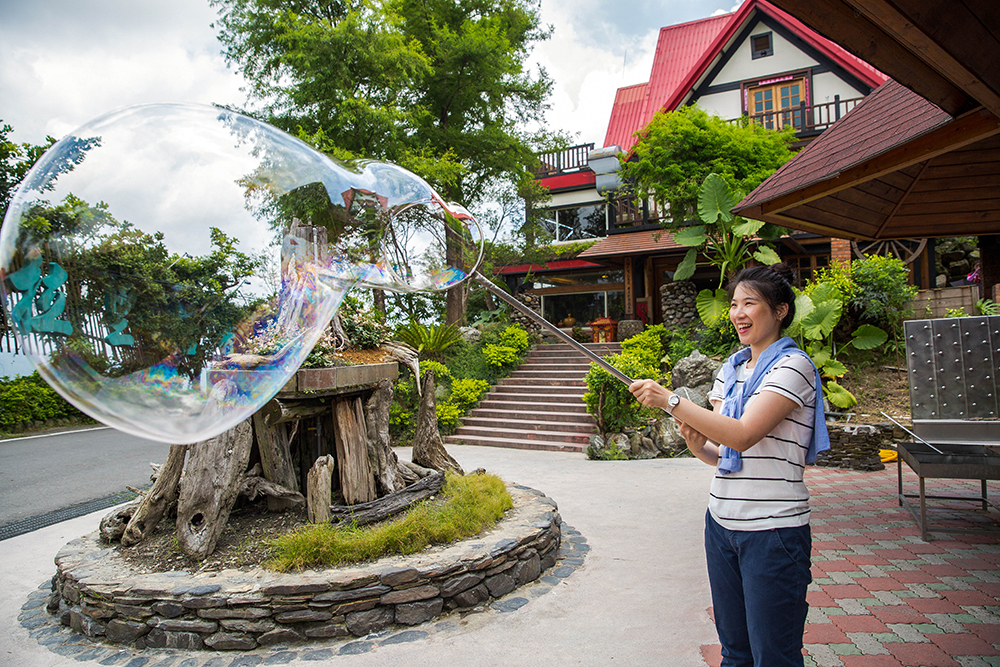
Playing with giant soap bubbles
Hungry after a day’s rambling, we take dinner at the Shangrila Leisure Farm’s restaurant. There’s a regular menu, offering a selection of four main courses with a salad, appetizer, rice, dessert, drink, and fruit for NT$350 – but if you notify the restaurant in advance (5 days is recommended), you can opt for the special seven-course seasonal set menu (priced at NT$660/person). We are served bitter melon glazed in honey, a fresh shrimp salad, monkey’s head mushroom soup (not what you might think – the monkey’s head is simply a variety of mushroom with a distinctly meaty texture), barbecued pork, deep-fried pumpkin balls, seafood meatballs, and an elaborate fruit bowl. The restaurant is also halal-certified, to accommodate Muslim guests, though halal sets must, too, be booked in advance.
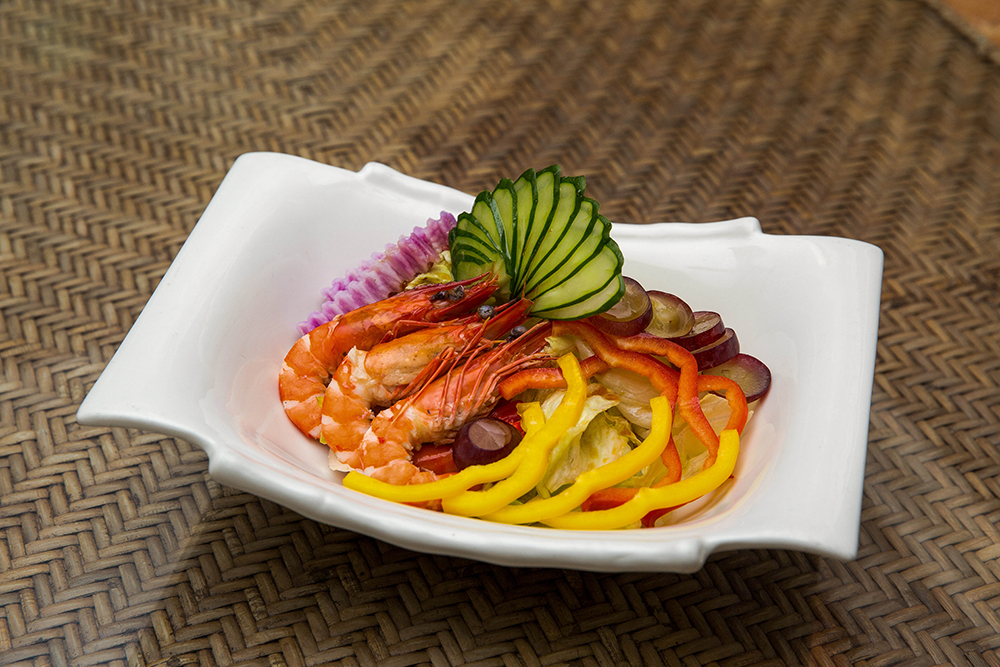
Fresh shrimp salad
For those wishing to contrast their relaxing day with a more pulsating evening, the farm’s staff host a series of folk entertainments every night at 8 pm. On the Costa del Sol, you might get a cabaret act or a bawdy comedian; in Taiwan, you get Techno Prince Nezha! This needs some explaining: Techno Prince Nezha is a large, bobble-headed Daoist deity, commonly seen dancing to techno music at temple fairs and processions. It’s a uniquely Taiwanese phenomenon that combines Taiwanese folk dancing with fast-paced electro-pop. The craze apparently began when some of the young people charged with dressing up as deities during these temple events began combining their religious piety with their love of clubbing. Only, as I said, in Taiwan.
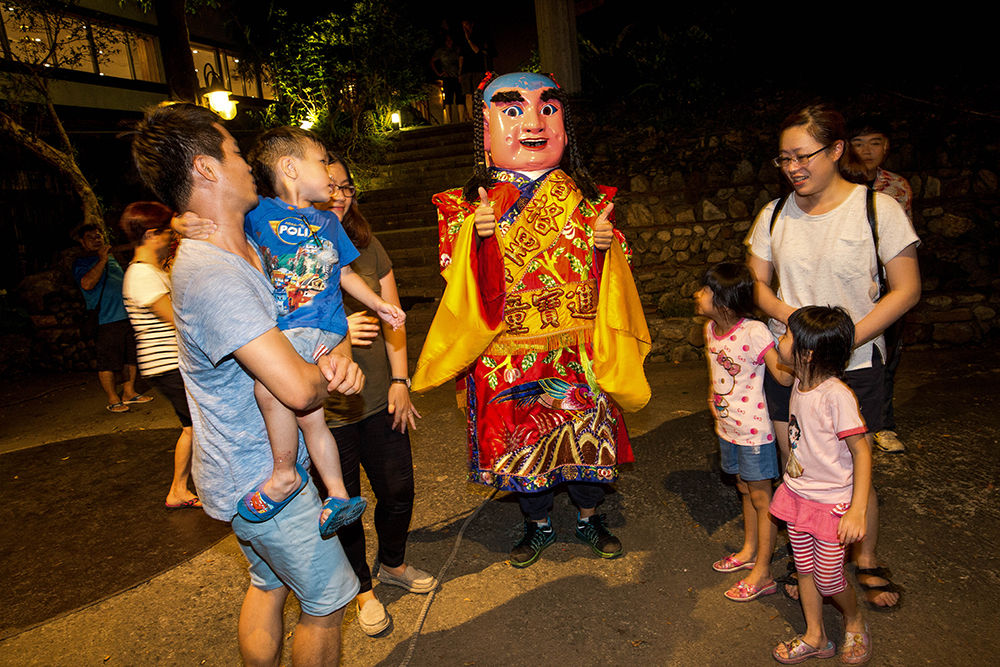
Techno Prince Nezha
After the Techno Prince has taken his final bow, the staff lead us in making tangyuan, chewy balls rolled from a dough of glutinous-rice flour, which are typically served during the Lantern Festival (the traditional end to the Chinese New Year period). They can be sweet or savory (depending on the filling) and, because of their round shape, symbolize family unity and togetherness.
Next up, while the tangyuan are cooking, is the spinning-top competition. Wooden spinning tops remain a popular retro toy in Taiwan, with experts able to perform some amazing tricks and stunts. We, however, are very much amateurs, and can barely get the things to spin at all (though we are rather good at getting our tops to skid uncontrollably across the floor).
Lastly, after guzzling down our tangyuan, we light sky-lanterns and watch entranced as the small paper-made hot-air balloons float away into a dark and starry sky.
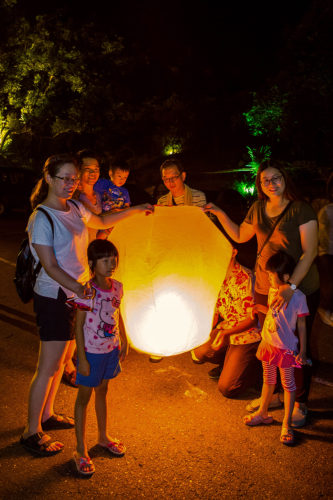
Sending a lantern to the night sky
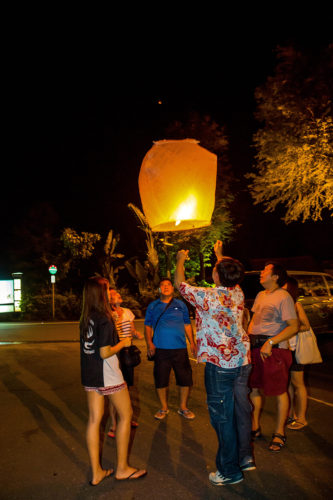
If you still have some energy left, and the conditions are agreeable, the farm’s staff will take you on a firefly hunt. There are over 30 species of firefly in Taiwan, though only two of these species can be seen regularly in the area surrounding the farm – the tiny Pyrocoelia analis in spring and early summer, and the larger Pyrocoelia praetexta Olivier later in the year. Following the guides to the fireflies’ favorite spots, you’ll see the luminous little insects dancing in shifting, flickering neon clouds, a sight made all the more special by the fact that in this, their post-larval state, their lives only last a little over a week.
Finally ready to turn in, we head back to the resort’s main accommodation complex, the Song Luo Resort. Completed in 2014, the hotel is a red-roofed, wood-columned set of buildings somewhat reminiscent of Swiss chalets. There are 75 guestrooms altogether, with another 20 under renovation, which will be ready next year.
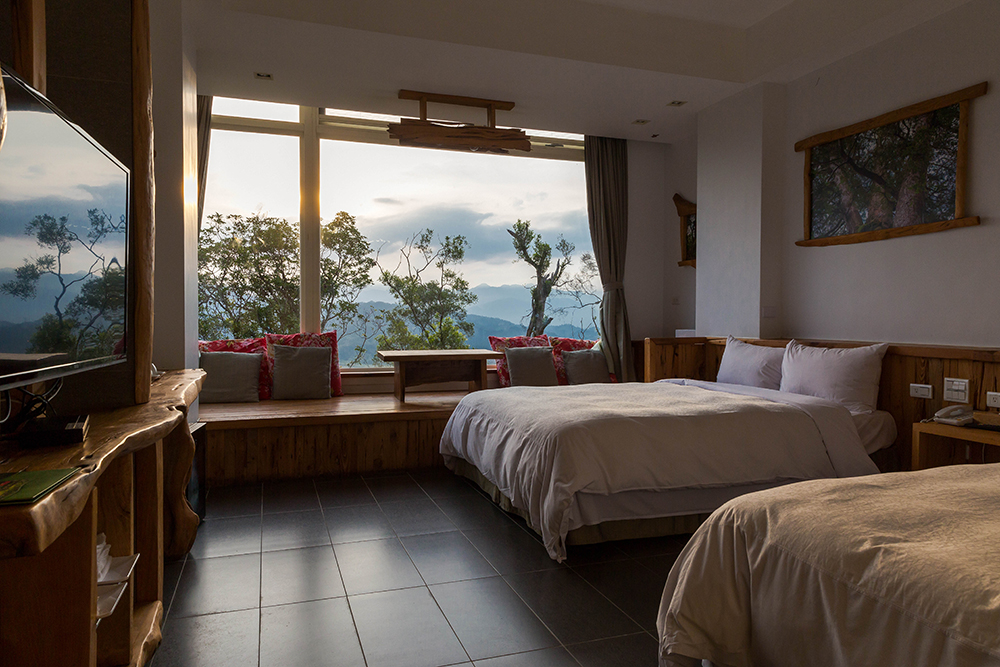
Guestroom with a splendid view
We stay in one of the Cirrus Deluxe rooms, NT$7,000 a night, with two large double beds (suitable for 2 or 4 guests), though there are smaller and cheaper rooms available –the cheapest being the Delicate Double room at NT$4,500 per night. Though undoubtedly pricy, the rooms are very tastefully designed – clean white walls contrasting nicely with pillars and beams of fragrant red cedar. Each room, too, has a large single-pane window, providing an unrestricted view of the valley and plain below. And, as a final elegant touch, in front of the window is a raised dais with a table and cushions, where you can sit cross-legged, enjoying some tea as the lights on the dark plain below start slowly to glimmer and glow.
Shangrila Leisure Farm provides a shuttle-bus service to and from Luodong Railway Station. Buses leave for the farm from Luodong twice a day, at 10:20 am and 2:20 pm, and from the farm for the station at 9:50am and 13:40pm. The fare is NT$100 per person (one way), and seats must be booked 3 days in advance.
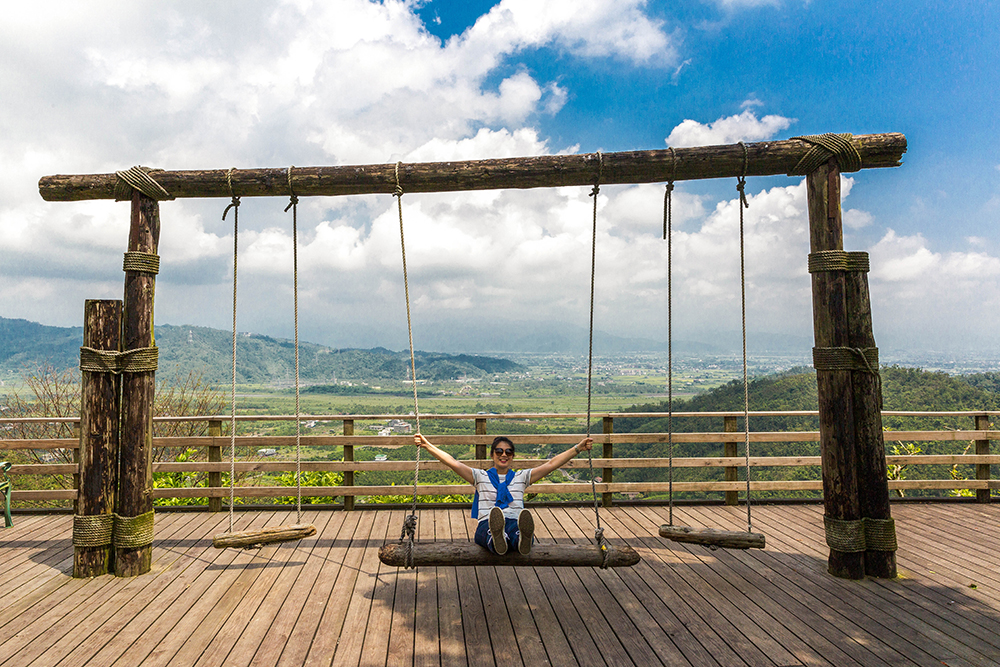
Enjoying a stay at Shangrila Leisure Farm
Add: No. 168, Meishan Rd., Dajin Village, Dongshan Township, Yilan County
(宜蘭縣冬山鄉大進村梅山路168號)
Tel: (03) 951-1456
Website: www.shangrilas.com.tw
About the author





